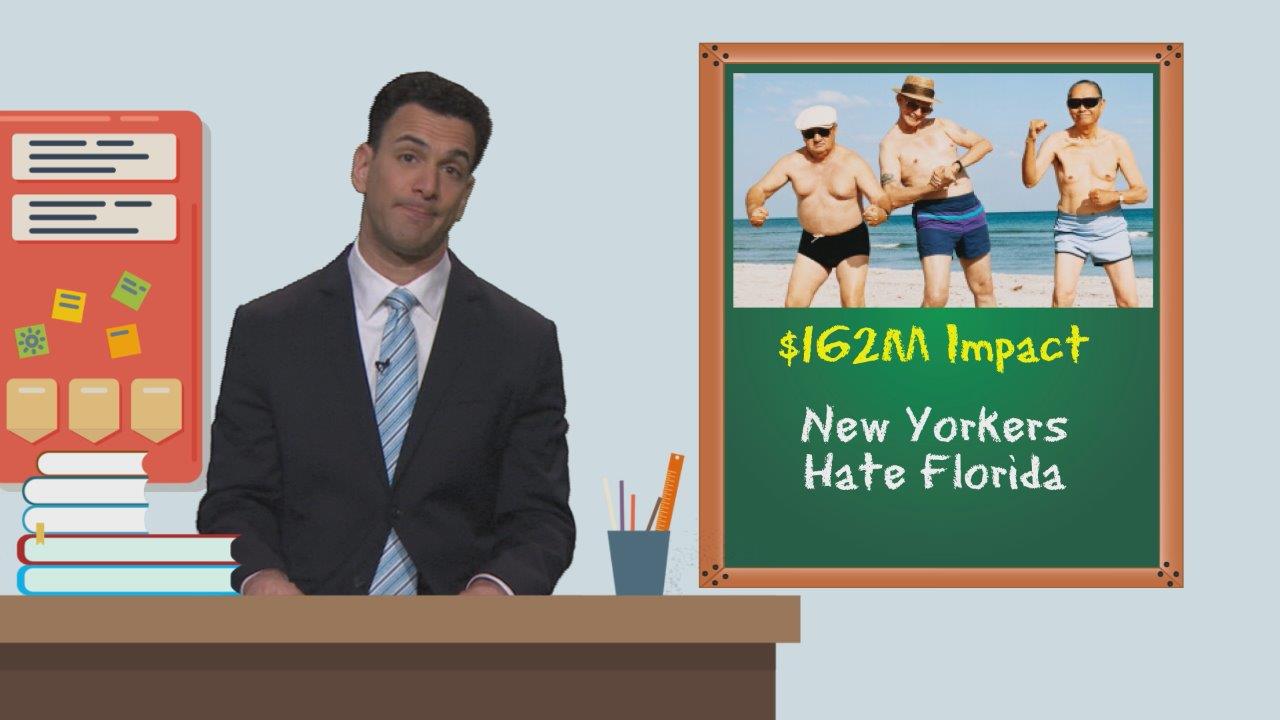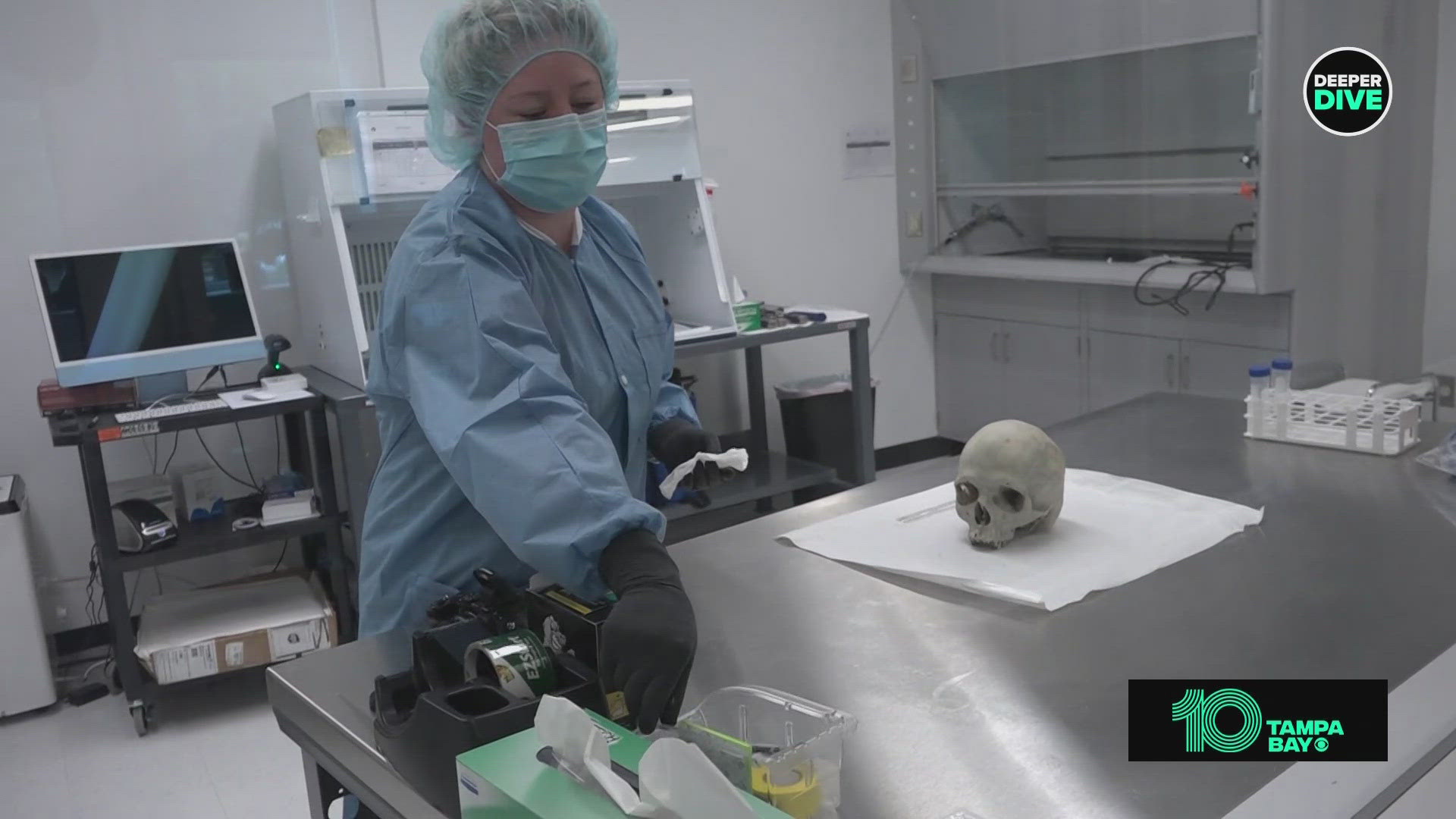TAMPA -- If you hear a stat about how many dollars or jobs an event promises to bring to your community...don’t believe it.
Economic impact projections, once used to estimate the benefit of a new business, have in recent decades all-too-often become nothing more than exaggerated justifications for big spending of tax dollars. It's a concept so simple, even 4-year-olds can understand it.
10Investigates found major flaws -- or the failure to disclose a report’s limitations – in some of the biggest economic impact reports used to justify public spending across Tampa Bay in recent years.
They include:
- The Tampa Bay Sports Commission’s claim this weekend’s college football championship will mean $250-350 million in economic impact to the Tampa Bay area;
- The New York Yankees’ claim the team created $162 million in the economy for Tampa Bay during it's 17-game spring training schedule last year;
- The Tampa host committee for the Republican National Convention’s claim it brought $400 million in economic impact to Tampa Bay in 2012.
“They give such a bad picture of what actually happens they can only be used if they promoted somebody’s idea,” said USF Economics Professor Philip Porter.
Porter, who will likely never be selected by a professional team, league, or event promoter to analyze economic impact, said reports about short-term events typically aren’t done by economists and typically abuse good economic practices. He called the reports “bogus,” with “no value whatsoever,” suggesting they are seeking a conclusion rather than seeking the truth.
One doesn’t need to be an economist to spot some of the serious flaws in some frequently-quoted economic impact studies:
- The Tampa Bay Sports Commission’s $250-$350 million claim for the college football championship game failed to account for “impact” that immediately leaves the area, such as many of the hotel, ticket, rental car, and restaurant dollars that are spent by visitors. Porter also pointed out it failed to account for money that would have been spent in Tampa Bay regardless this week, as Florida approaches the height of tourism season.
- The tax receipts in Hillsborough County during the 2012 GOP convention trailed all other surrounding counties – and the state – during August, because many locals avoided Tampa during the high-security event. So the host committee in charge of the event included “economic impact” in distant counties such as Polk and Hernando in its $400 million estimate.
- The Yankees got a cozy spring training lease extension after their report basically suggested every fan who attends a spring training game in Tampa spends a thousand dollars a day in the area and never would have come to Florida without the lure of spring training. Even though New Yorkers have been vacationing in Tampa Bay for at least a century.
Porter says great liberties are taken – and seldom challenged -- in these reports because politicians aren’t interested in the truth.
“Politicians want to do something and it doesn’t even matter if it works,” Porter said. “It just matters if people believe it works. Then, they say, ‘well, my politicians are doing a good job for me.’”
The college football championship game is likely to cost the region more than $10 million to host, although Porter says the actual economic impact may wind up being in the $25 to $30 million range.
“Move the decimal place over once or twice,” he said, suggesting actual impact is often less than a tenth of the estimated impact. “There are no jobs created from one game...you don’t build hotels; you don’t build restaurants; you don’t expand your airport because of one game...an economist would know better than to use a long-run steady-state (economic) model for a short duration event.”
Other questionable reports analyzed by 10Investigates include the City of Dunedin’s recent report aimed at securing county and state tax dollars for spring training renovations. The report claims Blue Jays spring training brings $71 million into the economy to the region each spring, but appears to double- and possibly triple-count fans in its methodology.
10Investigates also questioned ride-sharing company Lyft after it claimed $12 million in annual economic impact to Tampa. The company said the figure was calculated based off several assumptions about how much additional money Lyft users would spend shopping because of all the time the ride-sharing saved them. The author of the study was not made available to 10Investigates.
Find 10 Investigates reporter Noah Pransky on Facebook or follow his updates on Twitter. Read his Sports Business Blog at Shadow of the Stadium.


